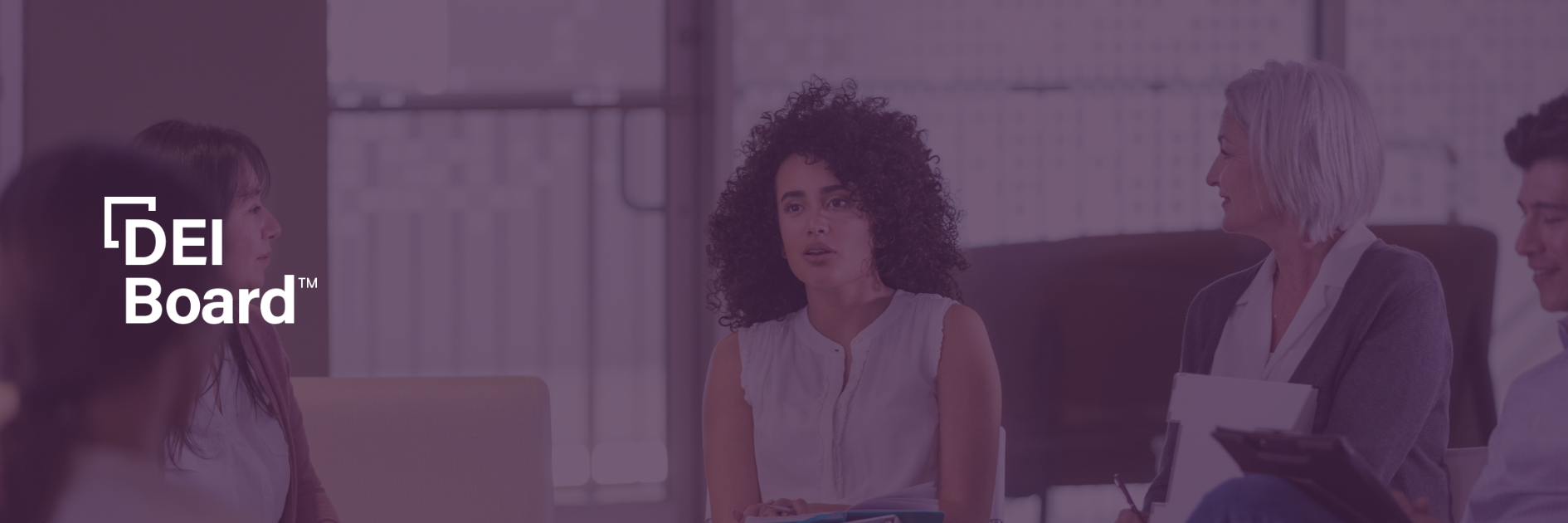Key takeaways:
- Open dialogue breaks down barriers: Engaging in open conversations helps address resistance and build a shared understanding of DEI initiatives, regardless of differing perspectives.
- Active listening fosters belonging: Creating safe spaces for individuals to express themselves fosters a sense of belonging, leading to personal growth and empathy among team members.
- Data-driven inclusivity matters: Inclusivity, backed by data-driven insights, is key to meaningful DEI progress, ensuring that everyone in the workforce participates and contributes to the cause.
In a recent DEI Board panel discussion about upholding diversity, equity, and inclusion commitments, our members explored how to approach individuals or groups expressing resistance or skepticism toward DEI initiatives.
Senior leaders at the world’s largest companies shed light on effective strategies for responding to resistance and integrating DEI into a company’s culture and operations.
We’ll take a look at the insights shared and how you can guide your strategy to those less receptive to DEI initiatives.
Embrace open conversations to create an understanding for all employees
Kristin Malek, Global Director of Business Diversity at CDW, discussed the importance of approaching resistance to DEI with honest conversations.
She highlighted the need to avoid getting bogged down by labels and categories and instead focus on having meaningful dialogues.
“I’m looking for reactions, feedback, and thoughts, and I was able to collect that,” Kristin said. “Not all agreed with me or where I stood or my views, but I think that all points of view are going to be necessary right now.”
In a rapidly changing DEI landscape, Kristin said staying present and gathering intelligence is essential to make informed decisions.
“Not all agreed with me or where I stood or my views, but I think that all points of view are going to be necessary right now.”
– Kristin Malek, Global Director of Business Diversity at CDW
Active listening mitigates resistance to DEI
Nashunda Williams, Global Head of Diversity, Equity, and Inclusion at JLL, stressed the significance of listening as the nucleus of belonging.
She explained that hosting listening sessions can create a safe space for individuals to express their feelings and experiences openly.
“It’s very important when facilitating those types of discussions to level set and explain this is not about taking sides,” Nashunda said. “This is about having a non-judgmental conversation where people can bring their lived experiences about how they’re feeling about things that are happening within society. It’s been really powerful.”
Nashunda acknowledges that she too had biases and preconceived notions, but participating in these sessions without fear of judgment allowed her perspective to evolve and become more insightful.
“This is about having a non-judgmental conversation where people can bring their lived experiences about how they’re feeling about things that are happening within society. It’s been really powerful.”
– Nashunda Williams, Global Head of Diversity, Equity, and Inclusion at JLL
In response to this positive experience, JLL implemented documentation for leaders to facilitate similar sessions, encouraging growth and empathy among team members.
Use data to drive meaningful connections to your DEI initiatives
Brooke Cartus, Vice President of Diversity, Equity, and Inclusion at Hard Rock International, emphasized the importance of inclusivity and data-driven decision-making in DEI initiatives.
She highlighted the need for having everyone in the workforce as part of discussions around DEI and noted that diversity alone cannot solve inclusion challenges.
“We won’t be around if we don’t have everyone in the workforce participating,” Brooke said. “And we need white men too because white men are in this space where they’re feeling left behind. I need everyone.”
Brooke also believes in using data to back the importance of DEI efforts and cited examples such as high turnover rates as indicators of inclusion problems.
“And we need white men too because white men are in this space where they’re feeling left behind. I need everyone.”
– Brooke Cartus, Vice President of Diversity, Equity, and Inclusion at Hard Rock International
She also advocated for making space for safe processing and open discussions, even mentioning the concept of caucusing based on race, allowing both white employees and people of color to process their experiences separately while still coming together to address common goals.
Strong rapport bridges differences throughout your organization
Both Kristin and Nashunda emphasized the importance of building relationships for sustained buy-in. When integrating DEI into your company’s DNA, starting with a strong rapport is essential.
Building trust and understanding among team members creates a foundation for cooperation and collaboration. Nashunda highlighted that meaningful relationships make it easier to address business challenges while integrating DEI practices.
“I think it starts with the conversation and that dialogue and getting to know who the person is,” Nashunda said. “What are their challenges? If you don’t have the relationship first, there probably will be some resistance.”
Address your DEI challenges with actionable insights from your peers
Responding to resistance around DEI involves a comprehensive approach that values open dialogue, active listening, data-driven decision-making, and the establishment of strong relationships.
These strategies form the bedrock of successful DEI integration within organizations, fostering understanding and inclusivity.
If you lead DEI at a large enterprise, you can learn more about addressing resistance with your peers in the DEI Board, where our members meet weekly to benchmark their strategies and gain actionable insights to drive their efforts forward.


